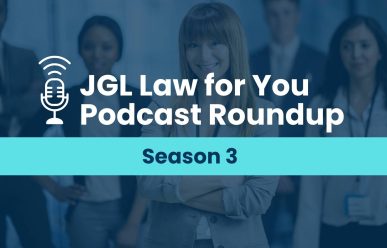I. Introduction
The U.S. Department of Treasury’s Financial Crimes Enforcement Network (FINCEN) finalized an updated reporting rule (the Reporting Rule) implementing Section 6403 of the Corporate Transparency Act (CTA) in September of 2022.[1] The Reporting Rule was created, in large part, to combat money laundering by foreign nationals who use shell and front companies to obfuscate their financial gains. The Reporting Rule requires all “reporting companies” to provide detailed information about their “beneficial owners” with the goal of heightened transparency in the United States’ financial system.
The reporting requirements took effect on January 1, 2024 and require qualifying entities to disclose detailed information about their “beneficial owners” and “Company applicants.” Entities that existed prior to January 1, 2024 must file their Beneficial Ownership Information Report (BOIR) by January 1, 2025. Entities created after January 1, 2024 must submit their BOIR within ninety (90) days of creation. However, the Reporting Rule includes broad exceptions, discussed below, which exempt certain companies from its reporting requirements. Failure to provide the required information can result in significant civil and criminal penalties.
II. The Reporting Rule
a. What is a Reporting Company?
A “reporting company” is defined as a corporation, limited liability company, or other similar entity created by filing a document with the Secretary of State of a respective State, or a similar office with a State or Indian Tribe.[2] Entities created in a foreign country and registered to do business in the United States by filing a document with a Secretary of State, or similar office under the laws of a State or Indian Tribe, are also considered “reporting companies” under the Reporting Rule and are subject to its mandate.[3]
b. What entities are exempt from the Reporting Rule?
The Reporting Rule identifies twenty-three (23) exemptions which except certain entities from its reporting requirements. The exemptions are:
- Security reporting issuers
- Governmental authorities
- Banks
- Credit unions
- Depository institution holding companies
- Money services businesses
- Brokers or dealers in securities
- Securities exchange or clearing agencies
- Other Exchange Act registered entities
- Investment companies or investment advisers
- Venture capital fund advisers
- Insurance companies
- State-licensed insurance producers
- Commodity Exchange Act registered entities
- Accounting firms
- Public utilities
- Financial market utilities
- Pooled investment vehicle
- Tax-exempt entities
- Entities assisting tax-exempt entities
- Large operating companies
- Subsidiaries of certain exempt entities
- Inactive entities
c. What information do reporting companies have to provide?
Reporting companies must provide the entity’s full legal name, address, jurisdiction of formation, and taxpayer identification number, or foreign equivalent. Reporting companies are also required to disclose the identity of each of its “beneficial owners.” A “beneficial owner” is “any individual who, directly or indirectly, either exercises substantial control over such reporting company or owns or controls at least 25 percent of the ownership interests of” the reporting company.[4]
An individual exercises “substantial control” of a reporting company if they are a senior officer, have authority to appointment or remove a senior officer, directs or has substantial influence over important decisions regarding the business, its reorganization or dissolution, expenditures or investments, termination of business lines, compensation schemes, execution of contracts, or amendments of governing documents.[5] Individuals who own subsidiaries of a “reporting company” can qualify as a “beneficial owner” based on their ownership share and title, and the obligation to comply with the Reporting Rule is not diluted simply because they do not have a direct ownership in a “reporting company.”
An entity must report the full legal name, date of birth, address, and unique identifying number and image of a US passport, state driver’s license, or other eligible identification document for each of its “beneficial owners.” Entities created after January 1, 2024 are required to provide the same information for its “company applicants,” which are the individuals who filed the documents with the Secretary of State, or similar office, in order to create the reporting company.
Reporting companies must also provide their “FinCEN Identifier” if they have one. A FinCEN identifier is a unique number issued to an individual or reporting company upon request. An individual or reporting company is not required to obtain a FinCEN identifier, but if they do, they may only receive one, single FinCEN identifier. Reporting companies must update their BOIR if relevant information changes between reporting periods.
d. Are there penalties for noncompliance?
The Reporting Rule authorizes significant fines for reporting companies who willfully fail to adhere to the Reporting Rule’s requirements, or willfully attempt to provide false or fraudulent information. This includes civil penalties of up to $500 for each day that the violation continues.[6] The Reporting Rule also authorizes criminal penalties including imprisonment for up to two years and/or a fine of up to $10,000. [7]
III. Conclusion
The Reporting Rule requires a broad swath of entities to report the identity of their beneficial owners and authorizes significant fines for entities that fail to do so. While reporting companies that existed prior to January 1, 2024 have until January 1, 2025 to comply with the Reporting Rule, every company who qualifies should file their BOIR as soon as possible to avoid the imposition of criminal and civil penalties.
[1] 30 C.F.R. Part 1010.380, 2022-21020.pdf (govinfo.gov).
[2] Id. at § 1010.380; 31 U.S.C. § 5336(a)(11).
[3] Supra, note 1 at § 1010.380(c).
[4] Supra, note 1 at § 1010.380(d).
[5] Id. § 1010.380(d)(1-7).
[6] Id. at § 1010.380(g).
[7] Id.




